(Audio version here)
I recently took advantage of the two week free trial of X’s premium service to see whether being ‘verified’ added any advantages worth having and decide whether to pay it permanently. The trial ends today and my decision is “No.” The reasons for this are both practical and ethical.
The practical decision is based on what suits my own writing style. A large part of the value of X for me is that its character limit obliges me, a chronic overthinker with a tendency to qualify almost everything I write and then qualify the qualifications, to refrain from wandering off into such weeds. On X, I have been compelled to condense my thinking into concise points that fit within a single 280 character post and then thread those points consecutively to build whatever case it is I am trying to make. I believe this has been valuable to the development of my style as a writer who aims for maximum clarity and orderliness of argument. This method clarifies my thinking in the process and the vast majority of my tweet threads are me thinking aloud as I try to order or clarify in my own mind what I think about a certain issue and invite other people into the process. Those other people are also incentivised by this chunked condensed effect to respond to the point I am making in any single post rather than to a general sense of what my stance is as so often happens in longform essays. Of course, the dishonest or terminally confused will still manage to respond to things I am not saying, but it makes it harder for them to do so and, when they do, their misrepresentation is clear to anybody else who is watching.
My intention, during my two week trial, was to see if I could continue to write in this way despite having the ability to write longer posts. The answer to that appears to be “No.” The temptation to use that extra space to expand on each point, qualify it or make multiple points in the same space is too strong and so waffle and a weakening of my clarity and linear argumentation ensued. Greater too have been responses by people responding to their biased interpretation of my ‘jist’ or ‘discourse’ rather than to the clear point I was actually making. Other people may well not find they have this problem and that they do not benefit from a format which compels them to make arguments in concise, consecutive points. I do have this problem and therefore X’s premium function is not for me.
However, I also have ethical qualms about paying for a premium services which boosts my posts over those of people who have not paid for the service. Not everybody can afford to pay for the premium service, but ‘having disposable cash’ does not tell us anything about whether an individual’s ideas are worth reading or not. There is also the tab which enables people to read only posts by verified users. This is why I had said previously that I was not inclined to have my account verified. I felt that the more people with moderately or widely popular accounts who decide against verification, the fewer people will be inclined to switch their notifications to ‘verified’ and only see responses from people willing or able to pay X for its premium service.
Of course, I do not believe it is unethical for a private company (which X is) to offer paying customers an enhanced service. Most private companies, quite reasonably, expect all customers to pay for their services, and customers remain free to decide whether or not this is a service they wish to pay for. This is how a liberal society which upholds the principle of free trade works. If X were a platform for businesses or artists or anybody else producing a product they wish to promote, it would be entirely unworrying for it to have a graded system of promotional benefits which producers could pay for to increase the reach of their products if they so chose. This is a perfectly ethical way to run a business & to promote a business. It's far from ideal for a platform used as a marketplace of ideas.
X promotes itself as a platform for free speech and, by some measures, it does well for this. Before being taken over by Elon Musk, Twitter, as it was then known, had a serious problem with censorship biased towards the identitarian left. This removed many of the most hateful racist or otherwise bigoted accounts but also people expressing strong but not abusive views on issues like gender identity and immigration. This was heavily criticised by defenders of the free exchange of ideas. We must support even the expression of views which could quite reasonably be designated as “hate speech” provided it does not constitute targeted harassment of individuals. On social media, people can make use of mute, block and private functions that enable them to curate their own feeds if they wish to avoid ideas which are hateful or simply ideas they themselves strongly disagree with. This leaves the rest of us who want to understand and engage with the ideas of others as they really are so that we can counter those we believe to be wrong and unethical effectively and change our own minds as warranted free to do so. Musk’s efforts to reduce direct censorship of certain ideas was a positive development. (He did not entirely eradicate this).
However, the free exchange of ideas on social media is not only impeded by direct censorship of some ideas. It can also be impeded by boosting the reach of the conveyers of some ideas and deboosting the reach of others. Having my feed curated by algorithms that prioritise people who can afford/are willing to pay the platform to boost their ideas is going to skew what I see towards those who have spare income & also feel positively enough about the owner of it to be prepared to pay him for doing that. A marketplace of ideas works optimally by people deciding whose ideas they’d like to read more of and whose they’d like to see less off for themselves based on whether or not they believe them to be well-argued and to have merit.
I can afford to pay for my ideas to reach more people but many other people cannot and so their ideas will be less visible on X than mine if I choose to pay for verification. This causes some conflicts with my personal code of conduct which I strive to make consistent with my liberal principles on freedom of speech and meritocracy and my left-wing principles on socio-economic class. On a much, much smaller scale, I try to make my own substack compatible with these principles by keeping all my written content freely available and comments open to everyone and respond most to the most thoughtful and interesting commenters whether they are paying subscribers or not. The paying subscribers who enable me to dedicate more time to Substack receive voiceovers and some other perks which do not impede the free exchange of ideas between all my subscribers. I do not believe everybody has the responsibility to have such a personal code of conduct and recognise that this is probably not the best business model and that private companies and individuals do have the right to use the best business models! However, the boosting of people who can afford to pay the platform to boost their ideas over those who cannot is something for advocates of the free exchange of ideas to bear in mind when evaluating X’s functionality as a marketplace of ideas.
There are also people who have negative views about Elon Musk for a variety of reasons. The most common criticism of him (which is not purely left-wing opposition to the forthcoming Trump administration with which he has significant influence) tends to heavily feature the words “technocracy” and “oligarchy.” People who have concerns about the degree of power and influence Mr. Musk has as a private individual who has not been elected to any governmental position are unlikely to want to contribute to the wealth that enables that by paying for verification. Consequently, their posts will be less visible than those who do not have concerns about this and are happy to do so. Again, it is not unethical for a private company to operate like this as it does so quite transparently and the consumer remains free to make their own choice about whether to support any business or any individual. It does undermine any naive beliefs about X being an entirely unbiased marketplace for the free exchange of ideas.
People can, of course, vote with their feet and leave X if they do not want to contribute to the wealth and consequently the power and influence of Mr. Musk and many have. Nevertheless, X really does have quite a monopoly over public political discourse and people wanting their views to be heard by as many people as possible will realistically need to use it. Mr. Musk and his supporters have been encouraging people to use X as their main source of news provided by ‘citizen journalists’ (social media users) and eschew what is often referred to as ‘legacy media.’ This is proving very effective.
Many people regard the prominence of X over other social media platforms and mainstream media as a very positive development facilitating the democratisation of knowledge production and the enablement of a greater range of everyday voices to be heard than those which find favour with left-wing technocratic elites and “establishment” media. The strongest evidence in support of this argument is to be found in US survey data suggesting that X is the most politically balanced platform.
Nevertheless, I suggest that we would do well not to naively accept X as the platform epitomising the new free marketplace of ideas. It is hard to argue that Mr. Musk is not a member of the ‘technocratic elite’ and, once the Trump administration is in power and he takes his place within it, that he is not a representative of ‘the establishment.’ X, while doing better on avoiding direct censorship than many platforms, does still use algorithms that favour people who are able and willing to pay the owner of it to promote their posts and it does still curate user feeds. It is not yet clear what this means, but I think people are right to be wary
When it comes to getting as close as we can to a well-functioning marketplace of ideas (given that humans are not perfectly rational and unbiased agents typically inclined to follow a wide range of ideas with an open mind) a platform that does not directly censor people by banning them for expressing ideas the owners of it don't like is good. Having one that gives everybody the same chance of having their ideas seen and facilitates a system in which the popularity of some ideas increase or decrease organically because people find them convincing or not would be better.
As we do not have such a platform, I think those of us who value the free exchange of ideas would do well to not to give up on mainstream media but read a politically diverse range of it, dip into a variety of smaller social media platforms (because they won’t all be censoring the same people) and, when using X, do whatever we can to circumvent algorithms that seek to curate our feeds and boost paying customers over the non-paying ones whose ideas we may actually prefer to consider (lists still seem to function to do this).
I, personally, choose not to pay for the premium service at this time, but I do not think that anybody who has chosen differently is doing anything unethical. A greater character allowance may well suit their communication style and enable them to express their ideas more effectively in a way that is not the case for me. The measures above to ensure that we can access a wide range of ideas and have some degree of agency in the process of choosing what we want to read are probably the best we can do given our current options and is not affected by whether we choose to pay for verification or not.
But let’s not be naive about the functionality of X as a bastion of free speech and the epitome of a thriving marketplace of ideas. It is neither.





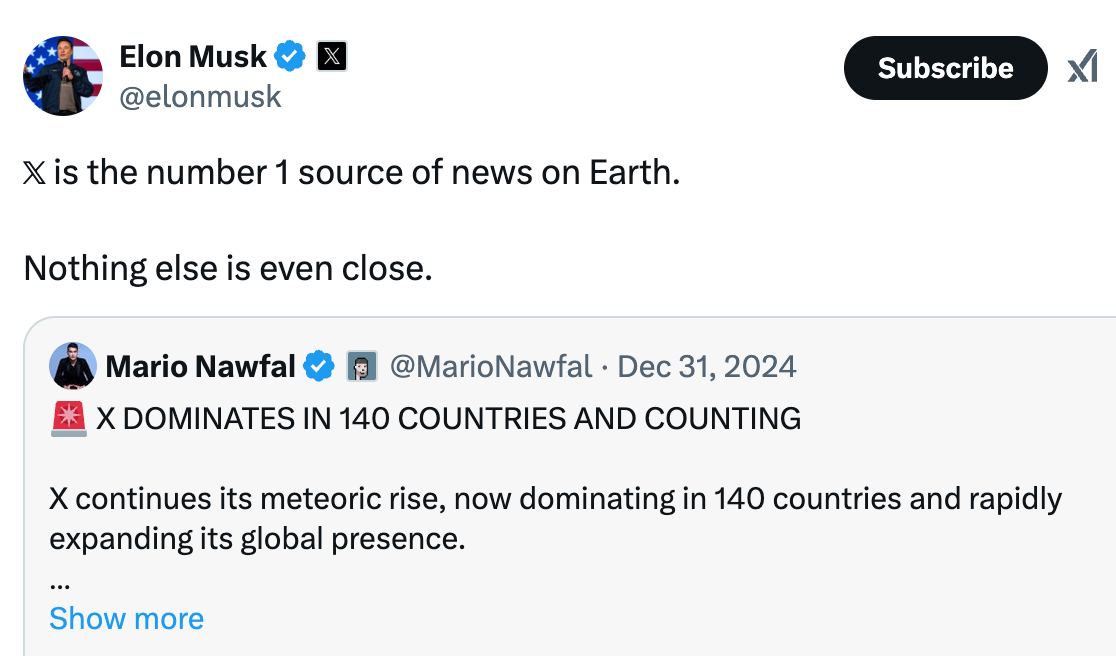
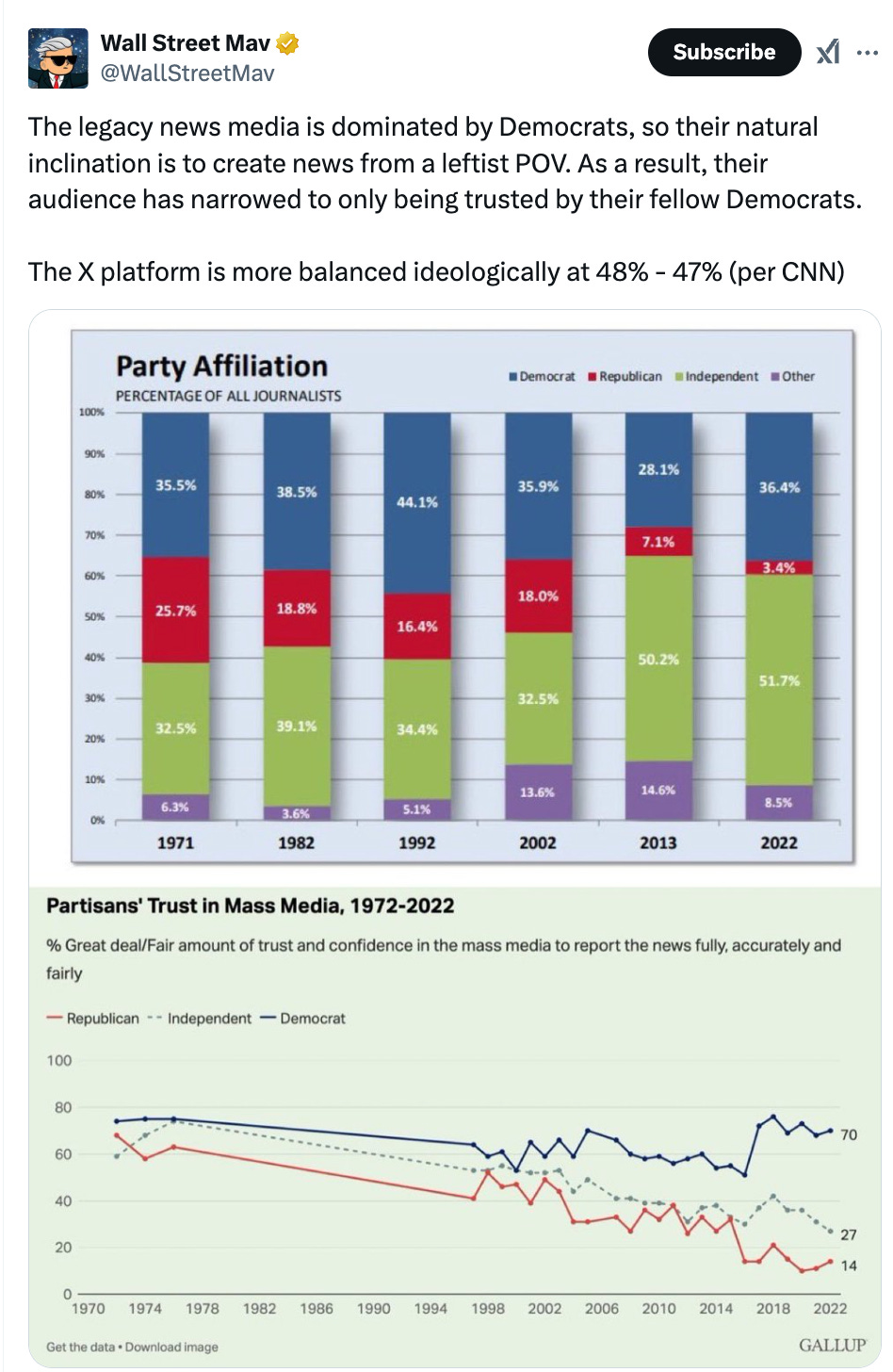
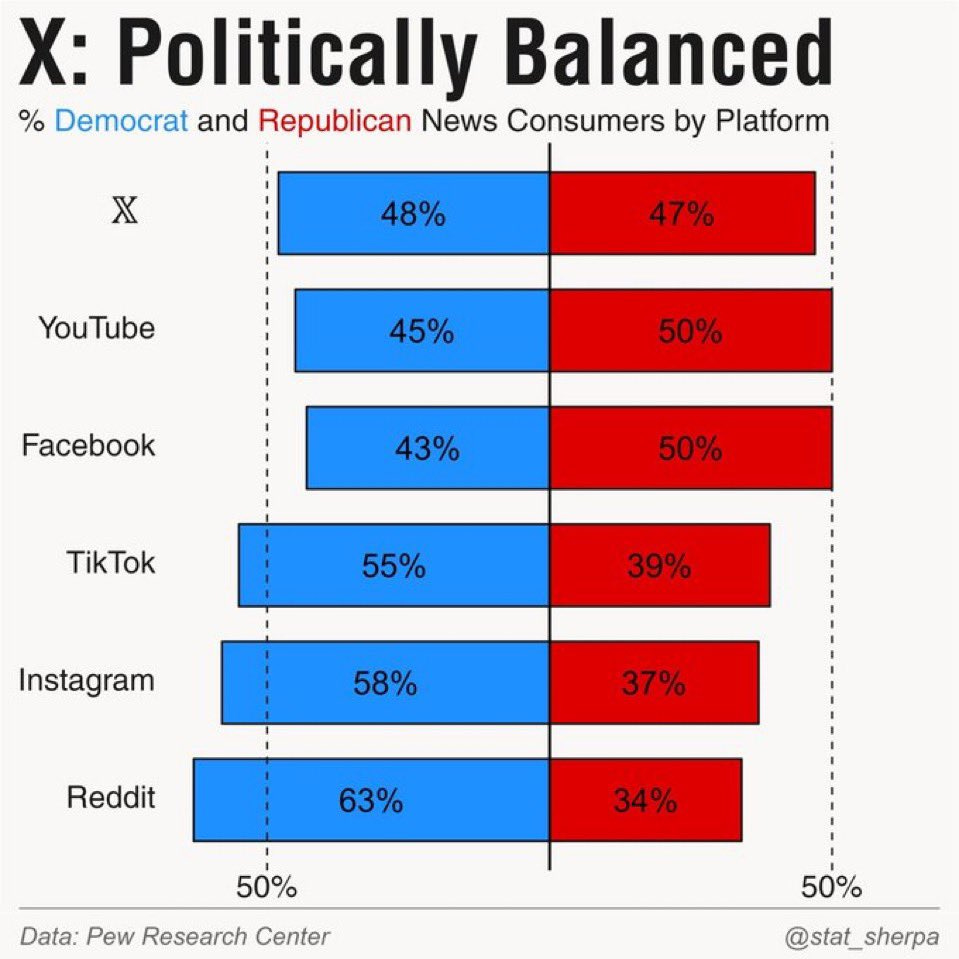
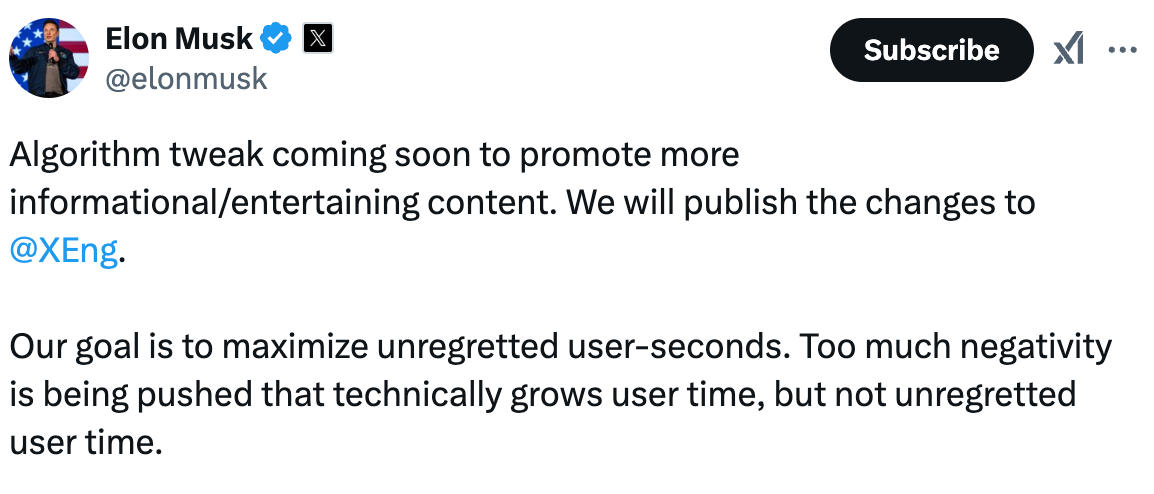
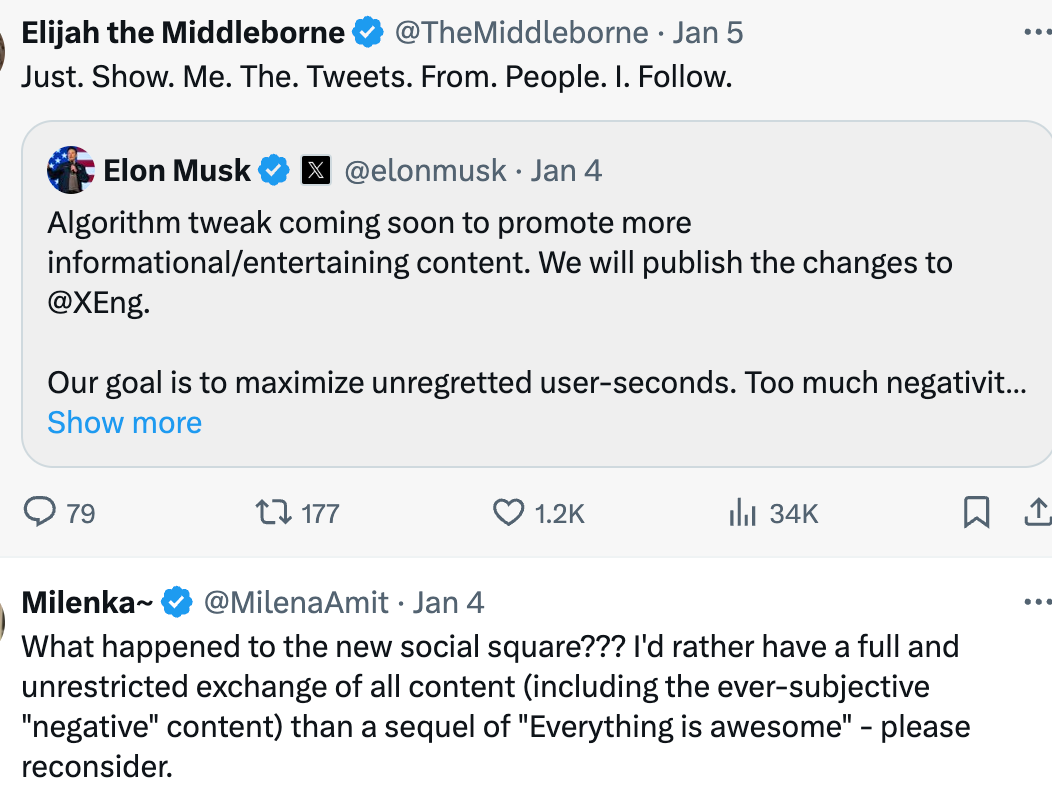
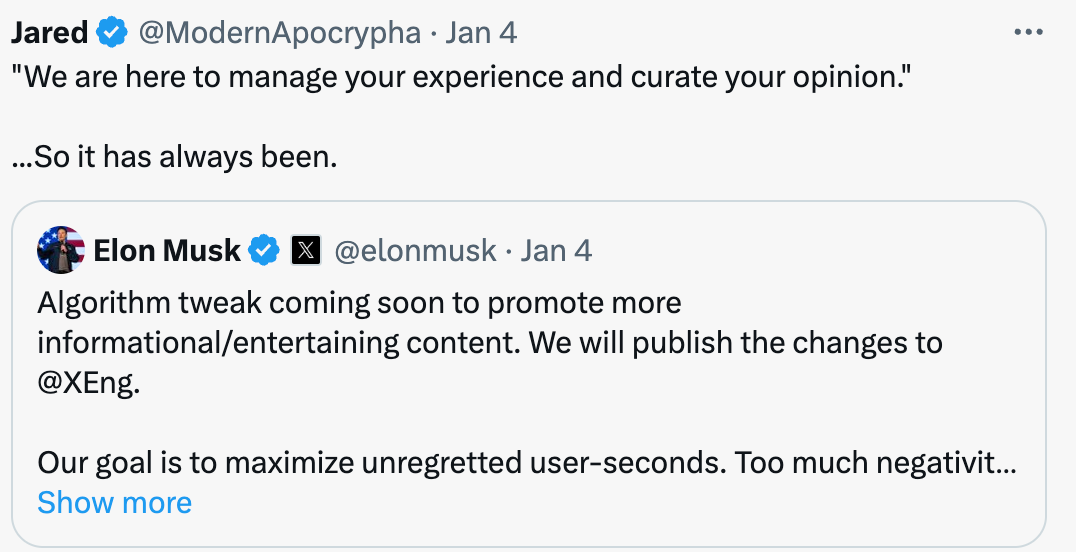
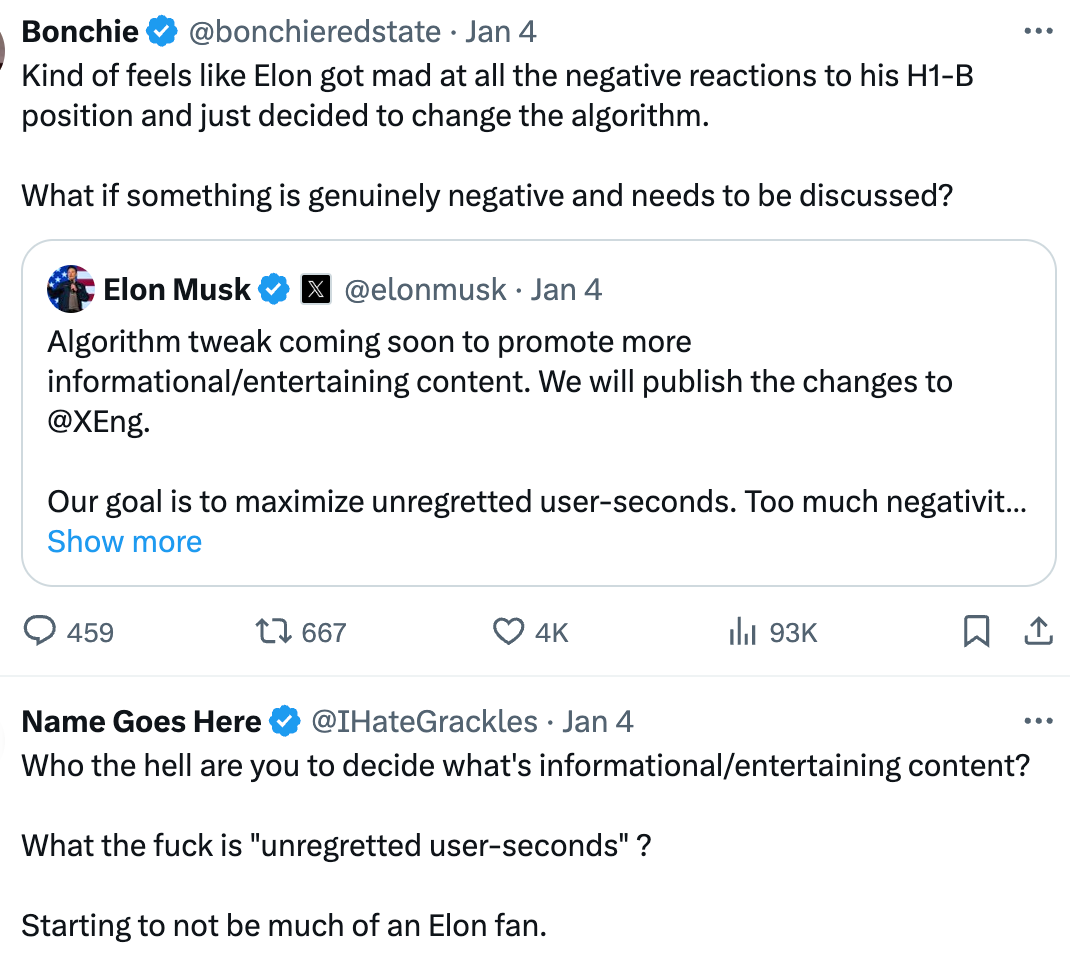
Good points. Although I'd say the free market works this way - people who cam pay for advertising and SEO will sell more even if the product is not as good. As you point out, the public is not rational and they often prefer comfortable garbage to quality, but challenging ideas. The thing I like best about X is, as you mention, the ability to create lists and curate your feed. I stick to the 'following' tab and avoid the 'for you' algorithm. My follows are usually those I've heard on podcasts and people who have written interesting papers. I am dismayed that some really interesting people and discussions have only a few likes. But then X isn't the real world, and these people are having more impact IRL. We mistake likes for both IRL popularity and reach.
Thanks, Helen, for your writing and for not paywalling it. I don’t begrudge people for wanting to make money off their labor. I also imagine limiting comments to subscribers only is a great way to stop trolls and nasty commentators. Didn’t know premium X accounts get promoted over others. Musk sure did pay a pretty penny for the privilege of blasting his opinions.